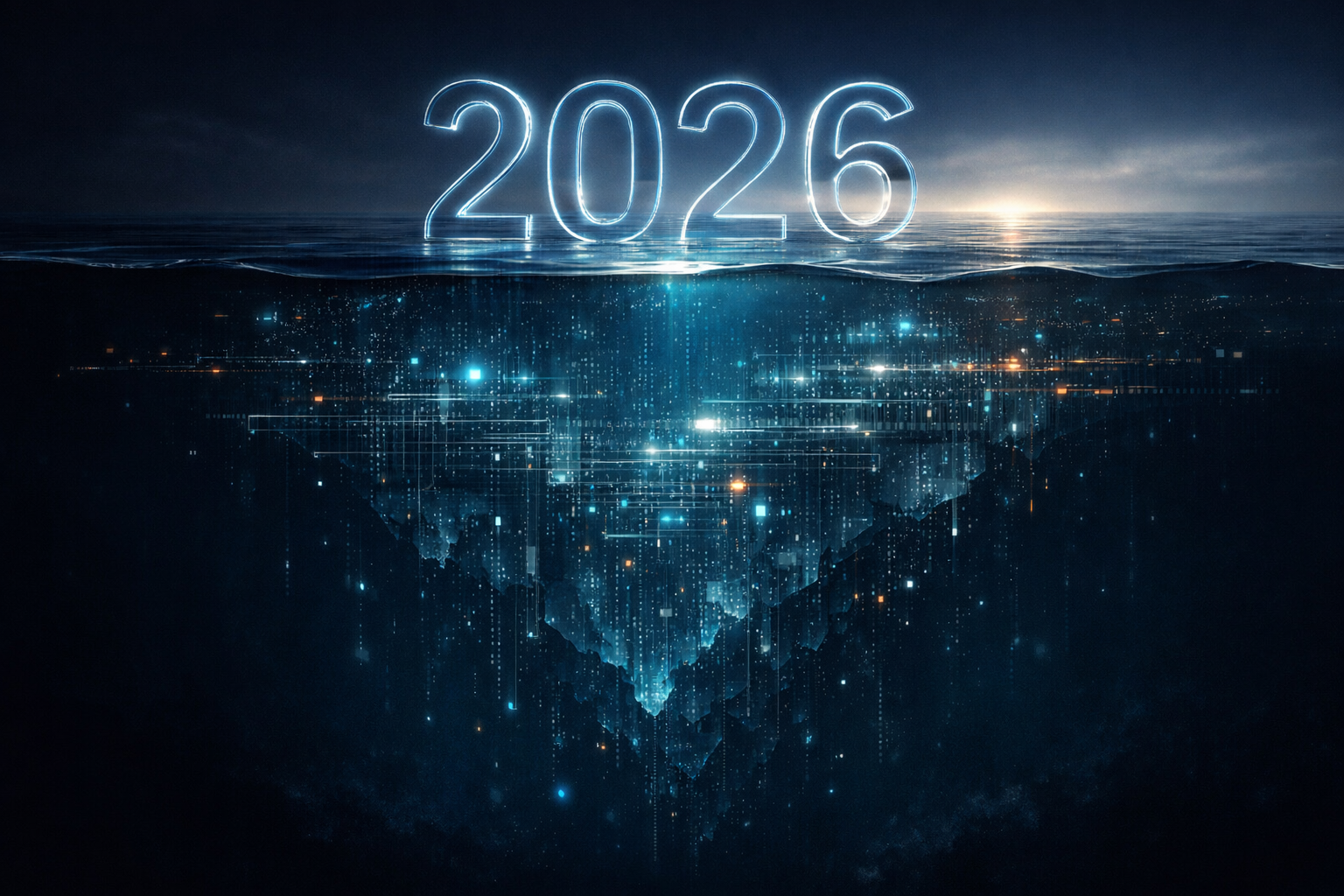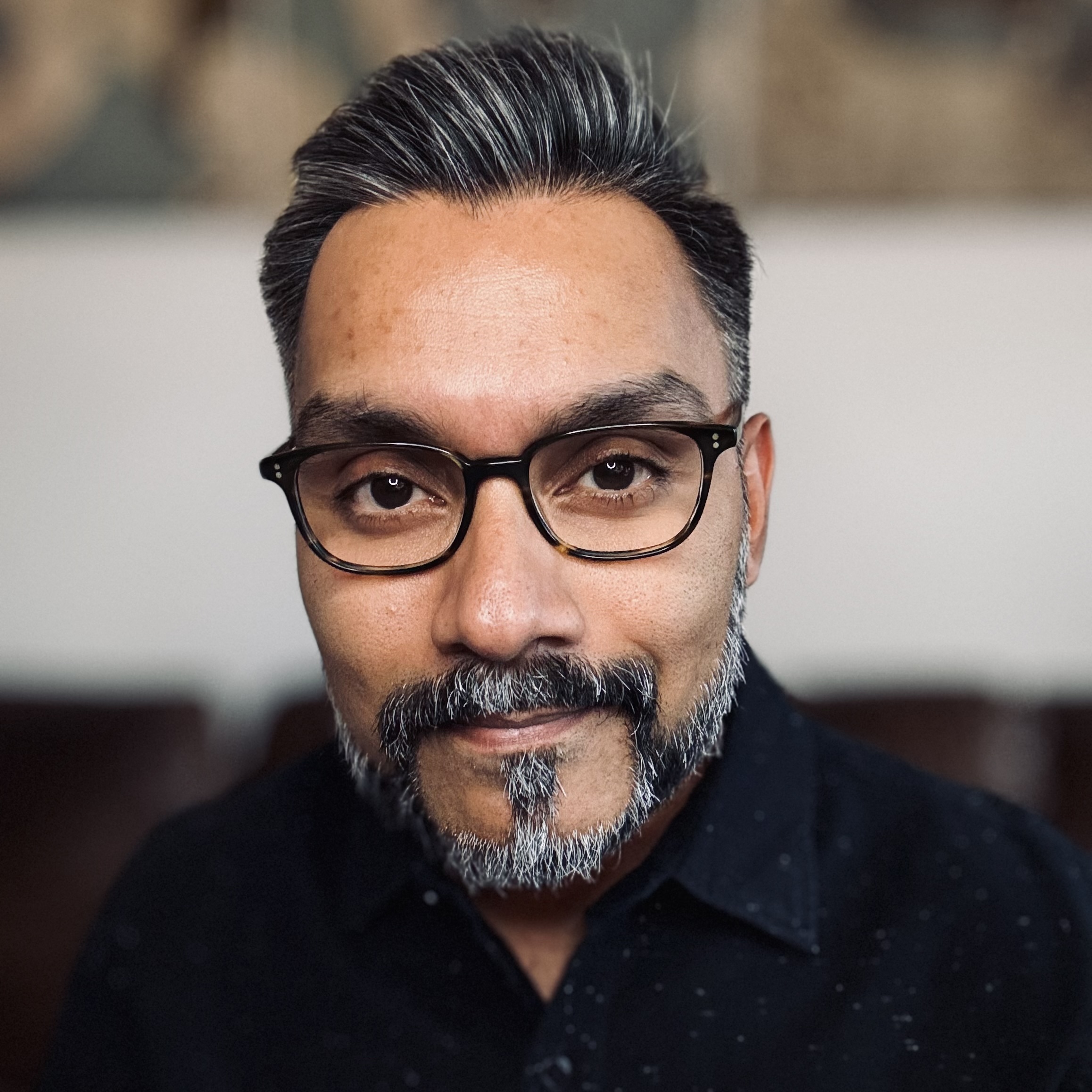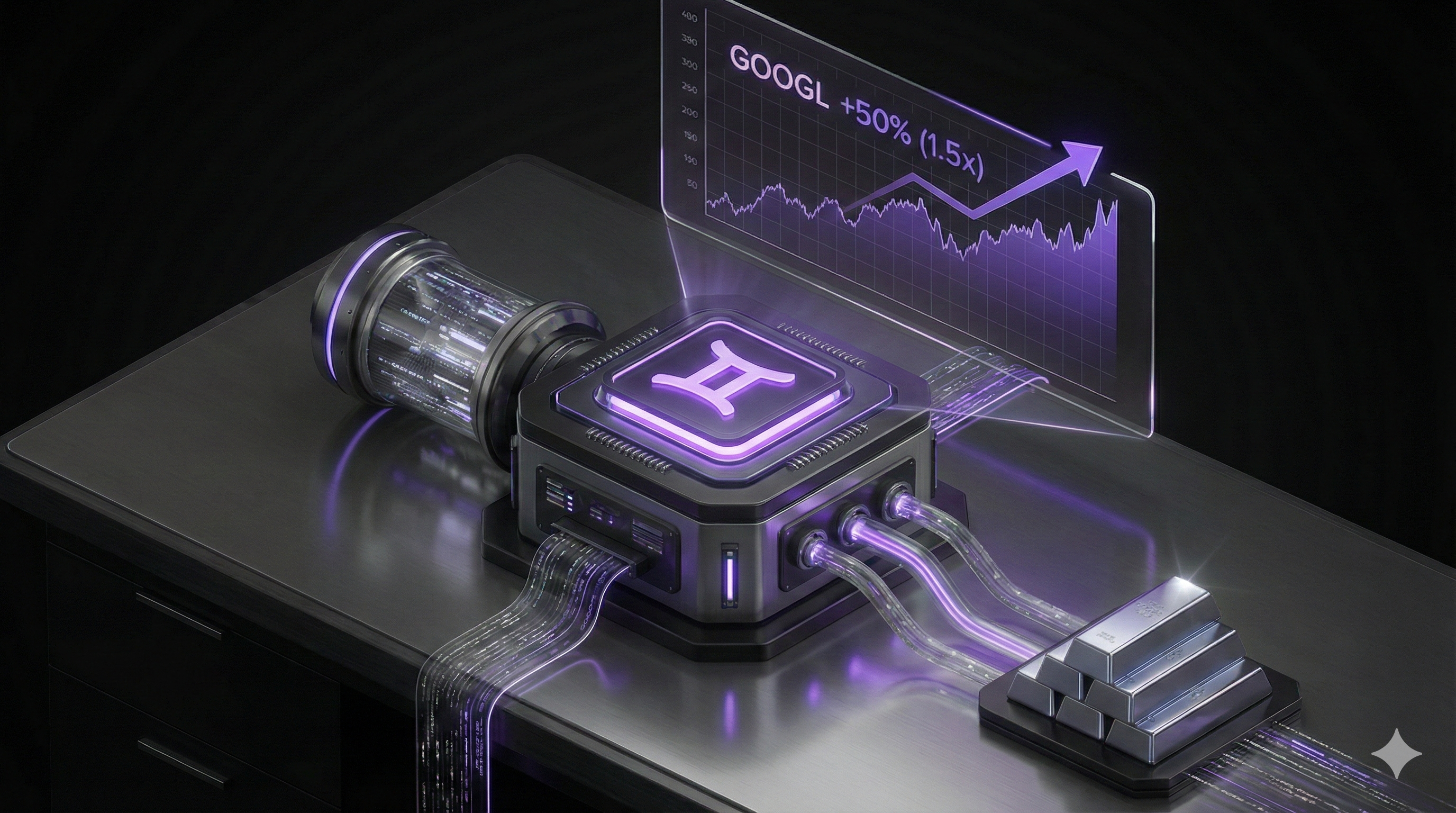AI AS A MIRROR : How Superagency is Forcing Us to Rethink What It Means to Be Human at Work


Linda Youssouf, M.A.
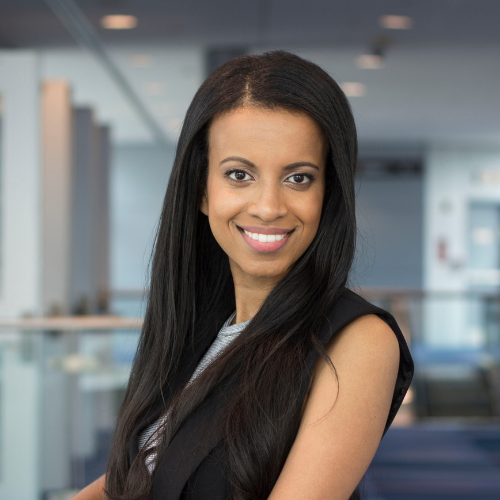
Linda Youssouf, M.A., is a visionary Strategy & Transformation Leader and Entrepreneur with over 15 years of experience orchestrating breakthrough transformations for multi-billion-dollar organizations and individuals across diverse backgrounds. Renowned for her unique ability to bridge human potential with cutting-edge innovation, Linda specializes in human-centric and responsible AI development, behavioral change, and integrative mind-body sciences. She empowers businesses and leaders to not just navigate change, but to master it—building unprecedented resilience and agility in an increasingly complex world. Connect with Linda on Linkedin, Instagram @iamlindawy or through her Substack "Inward" where she explores this convergence more deeply.
July 22, 2025





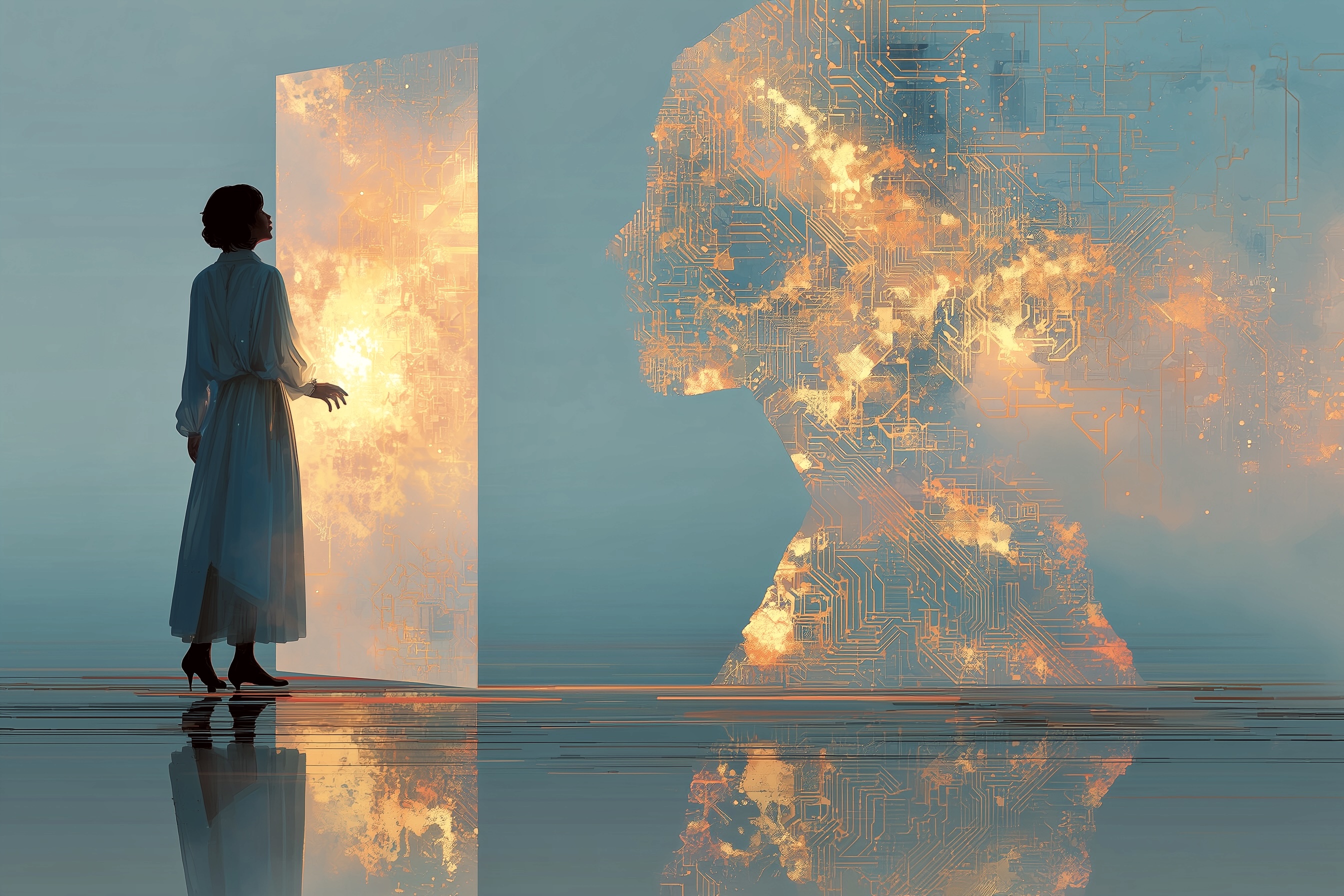
There are moments in history when humanity is compelled to pause and gaze into a mirror. Not the kind that reflects our physical features, but one that reveals the very essence of who we are, what we value, and what we aspire to become. In 2025, artificial intelligence has become that mirror. No longer a distant promise or a mere tool, AI now stands as a collaborator, a challenger, and a profound reflector of our collective soul. As someone who has spent years at the intersection of technology, strategy, and transformation, I find myself both exhilarated and unsettled by what this mirror reveals.
Superagency, the amplification of human potential through AI, is not just a technological leap. It is a philosophical invitation: a call to re-examine the meaning of work, mastery, and even humanity itself. As AI takes on more cognitive and creative tasks, we are forced to confront a question as old as philosophy: What does it mean to be human?
The Paradox of Progress: When Machines Think and Create
For centuries, our sense of self-worth at work has been tied to our ability to solve problems, generate ideas, and master complex skills. We have built entire cultures around the pursuit of expertise, the pride of craftsmanship, and the satisfaction of creative achievement. Yet today, AI systems can analyze data, compose music, write poetry, and even generate original scientific hypotheses. The boundaries between human and machine cognition are blurring at a pace that would have seemed fantastical just a decade ago.
This is the paradox of progress. The very technologies we create to extend our reach and amplify our agency now challenge the uniqueness of our contributions. If a machine can write a symphony or diagnose a disease, what remains for us? Are we destined to become mere supervisors of algorithms, or is there a deeper, more meaningful role awaiting us?
Subscribe now to unlock the full article and gain unlimited access to all premium content.
SubscribeThere are moments in history when humanity is compelled to pause and gaze into a mirror. Not the kind that reflects our physical features, but one that reveals the very essence of who we are, what we value, and what we aspire to become. In 2025, artificial intelligence has become that mirror. No longer a distant promise or a mere tool, AI now stands as a collaborator, a challenger, and a profound reflector of our collective soul. As someone who has spent years at the intersection of technology, strategy, and transformation, I find myself both exhilarated and unsettled by what this mirror reveals.
Superagency, the amplification of human potential through AI, is not just a technological leap. It is a philosophical invitation: a call to re-examine the meaning of work, mastery, and even humanity itself. As AI takes on more cognitive and creative tasks, we are forced to confront a question as old as philosophy: What does it mean to be human?
The Paradox of Progress: When Machines Think and Create
For centuries, our sense of self-worth at work has been tied to our ability to solve problems, generate ideas, and master complex skills. We have built entire cultures around the pursuit of expertise, the pride of craftsmanship, and the satisfaction of creative achievement. Yet today, AI systems can analyze data, compose music, write poetry, and even generate original scientific hypotheses. The boundaries between human and machine cognition are blurring at a pace that would have seemed fantastical just a decade ago.
This is the paradox of progress. The very technologies we create to extend our reach and amplify our agency now challenge the uniqueness of our contributions. If a machine can write a symphony or diagnose a disease, what remains for us? Are we destined to become mere supervisors of algorithms, or is there a deeper, more meaningful role awaiting us?
Superagency: More Than Automation
To answer this, we must first understand what Superagency truly means. It is tempting to see AI as simply the next stage of automation, a way to do more, faster, and with fewer errors. But Superagency is not about replacing humans; it is about amplifying what makes us distinct.
It is about creating a partnership in which AI handles the routine, the repetitive, and even the analytically complex, freeing us to focus on the ambiguous, the relational, and the deeply creative.Yet, this partnership is not automatic. It demands that we bring our full humanity to the table. It asks us to cultivate qualities that machines cannot replicate: empathy, ethical judgment, imagination, and the ability to find meaning in chaos. In this sense, AI is not just a mirror; it is a crucible, testing and refining our most human capacities.
Redefining Mastery: From Knowing to Becoming
Traditionally, mastery at work has been defined by the accumulation of knowledge and the perfection of technique. The master craftsman, the expert surgeon, the visionary artist: these archetypes have shaped our understanding of professional excellence.
But in a world where AI can access and synthesize more information in seconds than any human could in a lifetime, the nature of mastery is shifting. Today, true mastery is less about what you know and more about how you think, adapt, and collaborate. It is about asking better questions, connecting disparate ideas, and navigating uncertainty with wisdom and courage.
The most valuable professionals are not those who hoard knowledge, but those who can orchestrate human-AI collaboration to unlock new possibilities. This shift is both liberating and unsettling. It frees us from the tyranny of rote memorization and repetitive tasks, but it also unsettles our sense of identity. If expertise is no longer defined by what we know, who are we? The answer, I believe, lies in our willingness to embrace a new kind of mastery: one rooted in curiosity, humility, and the relentless pursuit of meaning.
The Human Touch: Empathy, Ethics, and Meaning
As AI becomes more capable, the qualities that remain uniquely human become more precious. Empathy, the ability to understand and share the feelings of others, cannot be coded into an algorithm.Ethical judgment, the capacity to weigh competing values and make principled decisions, requires a depth of understanding that transcends data. And meaning, the sense of purpose that animates our work and our lives, is something only we can create.
Superagency, at its best, is not about efficiency; it is about enrichment. It is about using AI to deepen our relationships, broaden our perspectives, and elevate our sense of purpose. It is about designing workplaces where technology serves humanity, not the other way around.
But this requires intentionality. It requires leaders who are willing to ask hard questions about the impact of AI on culture, motivation, and well-being. It requires organizations that prioritize human flourishing over short-term gains. And it requires each of us to take responsibility for how we engage with technology, not as passive consumers but as active co-creators of our future.
The Risk of Disengagement: When Agency Becomes Illusion
There is, however, a shadow side to superagency. As AI takes on more of the cognitive load, there is a risk that we become disengaged, content to let machines make decisions, solve problems, and even set our goals. The danger is not that AI will take over everything, but that we will abdicate our own agency, mistaking convenience for empowerment.
This is the illusion of agency: the belief that because we have powerful tools at our disposal, we are more in control. In reality, true agency requires engagement, reflection, and the willingness to wrestle with complexity. It requires us to remain present, to question assumptions, and to take ownership of our choices.
If we are not careful, Superagency could become superficial agency, a veneer of empowerment that masks a deeper loss of autonomy and meaning. The antidote is not to reject AI, but to use it as a catalyst for deeper engagement, greater self-awareness, and more intentional action.
Work as a Canvas for Becoming
In this new era, work is no longer just a means of survival or a path to status. It is a canvas for becoming, a space where we can explore our values, express our creativity, and contribute to something larger than ourselves.
AI, in its superagency form, expands the possibilities of this canvas, offering new tools, new collaborators, and new challenges. But the question remains: Are we ready to embrace this opportunity? Are we willing to let go of outdated notions of expertise and control and step into a more fluid, dynamic, and relational way of working? Are we prepared to see AI not as a competitor but as a mirror, one that reflects both our potential and our limitations?
The Call to Courage: Embracing the Unknown
To answer these questions, we must cultivate courage. The courage to experiment, to fail, and to learn. We must be willing to venture beyond the familiar, to question our assumptions, and to imagine new possibilities. This is not easy. It requires vulnerability, openness, and a willingness to be changed by what we encounter.
Yet it is also exhilarating. For the first time in history, we have the opportunity to co-create with intelligence that is not our own. We can use AI to amplify our strengths, compensate for our weaknesses, and explore realms of creativity and insight that were previously inaccessible.
Still, we must never forget that the ultimate purpose of AI is not to replace us but to empower us to become more fully human. This means designing systems that enhance our agency, not diminish it; that foster connection, not isolation; and that invite us to bring our whole selves to the work we do.
A New Philosophy of Work
What, then does it mean to be human at work in the age of Superagency ? It means embracing a new philosophy, one that values not just output but growth; not just efficiency but meaning; not just knowledge but wisdom.
It means recognizing that our greatest contributions are not the tasks we complete but the relationships we build, the questions we ask, and the values we embody. It means seeing work as a journey of becoming, a process of continual learning, adaptation, and self-discovery.
AI can be a powerful companion on this journey, but it cannot walk the path for us. The choices we make, the risks we take, and the meaning we create are ours alone.
The Mirror's Challenge: Choosing Our Response
As we look into the mirror of AI, we are confronted with both possibility and responsibility. We have the power to shape the future of work, not by clinging to the past but by embracing the unknown with curiosity, courage, and compassion.
Superagency is not a destination but a journey, a continual process of reimagining what it means to be human in a world of intelligent machines. It is an invitation to become more than we ever thought possible, not by outcompeting our creations but by collaborating with them in the service of a richer, more meaningful life.
In the end, the question is not whether AI will change us but how we will choose to change in response. Will we use this mirror to deepen our understanding, expand our agency, and elevate our sense of purpose? Or will we settle for superficial empowerment, content to let machines define our destiny?
The answer, I believe, lies in our willingness to remain fully, fiercely, and unapologetically human: to bring our hearts, our minds, and our spirits to the work we do and to use every tool a tour disposal, including AI, to create a future worthy of our highest aspirations.
There are moments in history when humanity is compelled to pause and gaze into a mirror. Not the kind that reflects our physical features, but one that reveals the very essence of who we are, what we value, and what we aspire to become. In 2025, artificial intelligence has become that mirror. No longer a distant promise or a mere tool, AI now stands as a collaborator, a challenger, and a profound reflector of our collective soul. As someone who has spent years at the intersection of technology, strategy, and transformation, I find myself both exhilarated and unsettled by what this mirror reveals.
Superagency, the amplification of human potential through AI, is not just a technological leap. It is a philosophical invitation: a call to re-examine the meaning of work, mastery, and even humanity itself. As AI takes on more cognitive and creative tasks, we are forced to confront a question as old as philosophy: What does it mean to be human?
The Paradox of Progress: When Machines Think and Create
For centuries, our sense of self-worth at work has been tied to our ability to solve problems, generate ideas, and master complex skills. We have built entire cultures around the pursuit of expertise, the pride of craftsmanship, and the satisfaction of creative achievement. Yet today, AI systems can analyze data, compose music, write poetry, and even generate original scientific hypotheses. The boundaries between human and machine cognition are blurring at a pace that would have seemed fantastical just a decade ago.
This is the paradox of progress. The very technologies we create to extend our reach and amplify our agency now challenge the uniqueness of our contributions. If a machine can write a symphony or diagnose a disease, what remains for us? Are we destined to become mere supervisors of algorithms, or is there a deeper, more meaningful role awaiting us?
Superagency: More Than Automation
To answer this, we must first understand what Superagency truly means. It is tempting to see AI as simply the next stage of automation, a way to do more, faster, and with fewer errors. But Superagency is not about replacing humans; it is about amplifying what makes us distinct.
It is about creating a partnership in which AI handles the routine, the repetitive, and even the analytically complex, freeing us to focus on the ambiguous, the relational, and the deeply creative.Yet, this partnership is not automatic. It demands that we bring our full humanity to the table. It asks us to cultivate qualities that machines cannot replicate: empathy, ethical judgment, imagination, and the ability to find meaning in chaos. In this sense, AI is not just a mirror; it is a crucible, testing and refining our most human capacities.
Redefining Mastery: From Knowing to Becoming
Traditionally, mastery at work has been defined by the accumulation of knowledge and the perfection of technique. The master craftsman, the expert surgeon, the visionary artist: these archetypes have shaped our understanding of professional excellence.
But in a world where AI can access and synthesize more information in seconds than any human could in a lifetime, the nature of mastery is shifting. Today, true mastery is less about what you know and more about how you think, adapt, and collaborate. It is about asking better questions, connecting disparate ideas, and navigating uncertainty with wisdom and courage.
The most valuable professionals are not those who hoard knowledge, but those who can orchestrate human-AI collaboration to unlock new possibilities. This shift is both liberating and unsettling. It frees us from the tyranny of rote memorization and repetitive tasks, but it also unsettles our sense of identity. If expertise is no longer defined by what we know, who are we? The answer, I believe, lies in our willingness to embrace a new kind of mastery: one rooted in curiosity, humility, and the relentless pursuit of meaning.
The Human Touch: Empathy, Ethics, and Meaning
As AI becomes more capable, the qualities that remain uniquely human become more precious. Empathy, the ability to understand and share the feelings of others, cannot be coded into an algorithm.Ethical judgment, the capacity to weigh competing values and make principled decisions, requires a depth of understanding that transcends data. And meaning, the sense of purpose that animates our work and our lives, is something only we can create.
Superagency, at its best, is not about efficiency; it is about enrichment. It is about using AI to deepen our relationships, broaden our perspectives, and elevate our sense of purpose. It is about designing workplaces where technology serves humanity, not the other way around.
But this requires intentionality. It requires leaders who are willing to ask hard questions about the impact of AI on culture, motivation, and well-being. It requires organizations that prioritize human flourishing over short-term gains. And it requires each of us to take responsibility for how we engage with technology, not as passive consumers but as active co-creators of our future.
The Risk of Disengagement: When Agency Becomes Illusion
There is, however, a shadow side to superagency. As AI takes on more of the cognitive load, there is a risk that we become disengaged, content to let machines make decisions, solve problems, and even set our goals. The danger is not that AI will take over everything, but that we will abdicate our own agency, mistaking convenience for empowerment.
This is the illusion of agency: the belief that because we have powerful tools at our disposal, we are more in control. In reality, true agency requires engagement, reflection, and the willingness to wrestle with complexity. It requires us to remain present, to question assumptions, and to take ownership of our choices.
If we are not careful, Superagency could become superficial agency, a veneer of empowerment that masks a deeper loss of autonomy and meaning. The antidote is not to reject AI, but to use it as a catalyst for deeper engagement, greater self-awareness, and more intentional action.
Work as a Canvas for Becoming
In this new era, work is no longer just a means of survival or a path to status. It is a canvas for becoming, a space where we can explore our values, express our creativity, and contribute to something larger than ourselves.
AI, in its superagency form, expands the possibilities of this canvas, offering new tools, new collaborators, and new challenges. But the question remains: Are we ready to embrace this opportunity? Are we willing to let go of outdated notions of expertise and control and step into a more fluid, dynamic, and relational way of working? Are we prepared to see AI not as a competitor but as a mirror, one that reflects both our potential and our limitations?
The Call to Courage: Embracing the Unknown
To answer these questions, we must cultivate courage. The courage to experiment, to fail, and to learn. We must be willing to venture beyond the familiar, to question our assumptions, and to imagine new possibilities. This is not easy. It requires vulnerability, openness, and a willingness to be changed by what we encounter.
Yet it is also exhilarating. For the first time in history, we have the opportunity to co-create with intelligence that is not our own. We can use AI to amplify our strengths, compensate for our weaknesses, and explore realms of creativity and insight that were previously inaccessible.
Still, we must never forget that the ultimate purpose of AI is not to replace us but to empower us to become more fully human. This means designing systems that enhance our agency, not diminish it; that foster connection, not isolation; and that invite us to bring our whole selves to the work we do.
A New Philosophy of Work
What, then does it mean to be human at work in the age of Superagency ? It means embracing a new philosophy, one that values not just output but growth; not just efficiency but meaning; not just knowledge but wisdom.
It means recognizing that our greatest contributions are not the tasks we complete but the relationships we build, the questions we ask, and the values we embody. It means seeing work as a journey of becoming, a process of continual learning, adaptation, and self-discovery.
AI can be a powerful companion on this journey, but it cannot walk the path for us. The choices we make, the risks we take, and the meaning we create are ours alone.
The Mirror's Challenge: Choosing Our Response
As we look into the mirror of AI, we are confronted with both possibility and responsibility. We have the power to shape the future of work, not by clinging to the past but by embracing the unknown with curiosity, courage, and compassion.
Superagency is not a destination but a journey, a continual process of reimagining what it means to be human in a world of intelligent machines. It is an invitation to become more than we ever thought possible, not by outcompeting our creations but by collaborating with them in the service of a richer, more meaningful life.
In the end, the question is not whether AI will change us but how we will choose to change in response. Will we use this mirror to deepen our understanding, expand our agency, and elevate our sense of purpose? Or will we settle for superficial empowerment, content to let machines define our destiny?
The answer, I believe, lies in our willingness to remain fully, fiercely, and unapologetically human: to bring our hearts, our minds, and our spirits to the work we do and to use every tool a tour disposal, including AI, to create a future worthy of our highest aspirations.


.svg)
